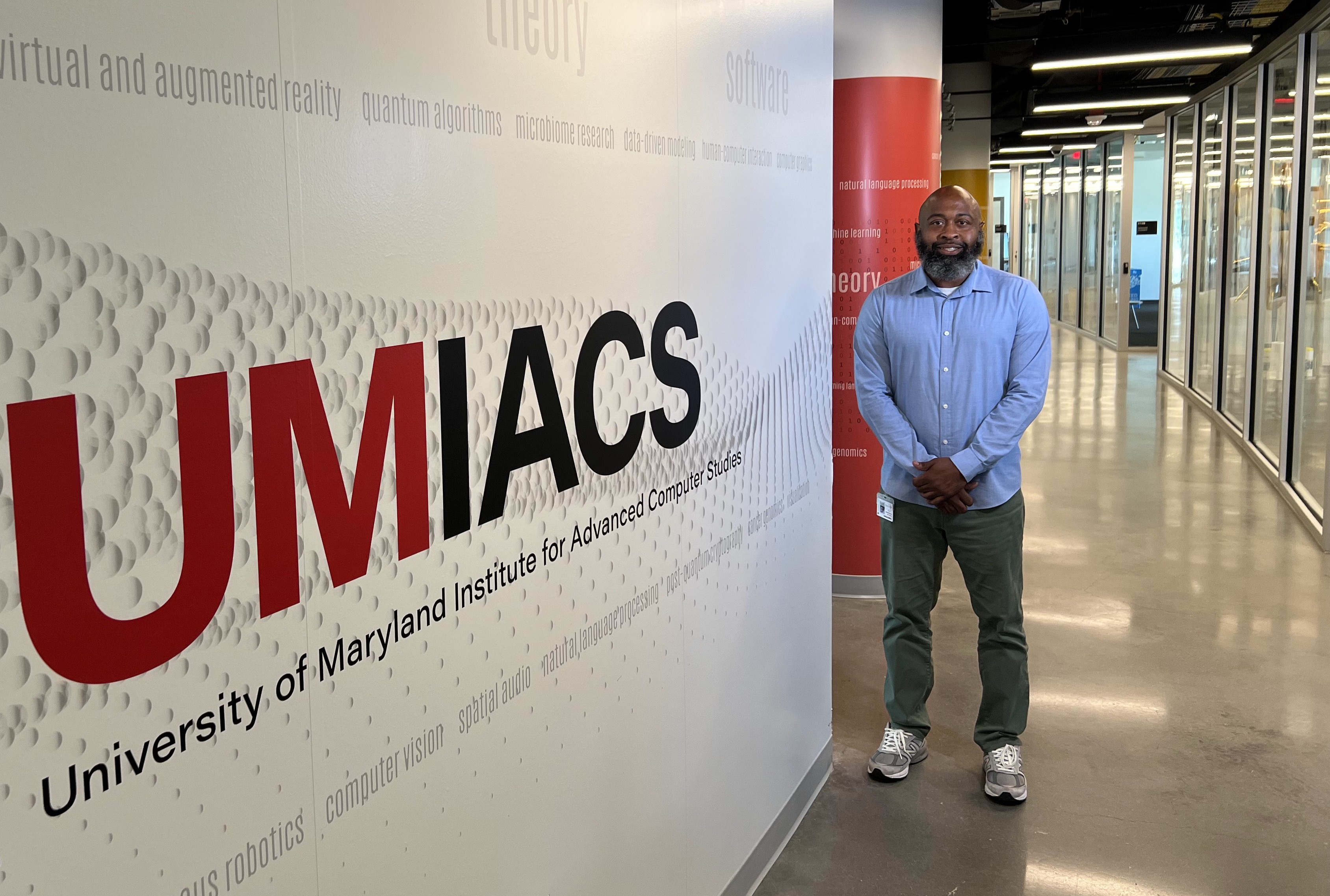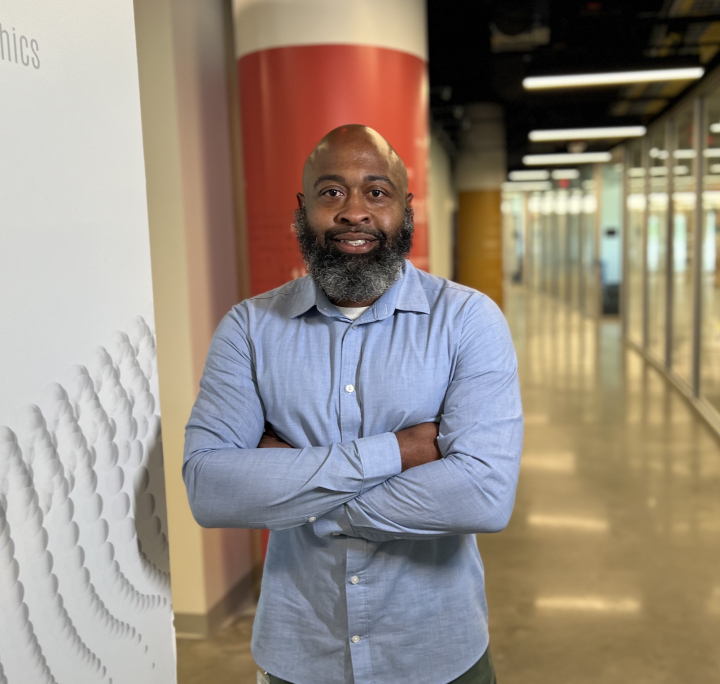Holmes Hustles Behind the Scenes
Whether it’s managing an office move or handling multiple maintenance requests, J’Vaughn Holmes could be one of the busiest staff members on the University of Maryland campus, yet he juggles his hectic workload with consummate ease and an engaging sense of humor.
As the facilities coordinator for the University of Maryland Institute for Advanced Computer Studies (UMIACS) and the Department of Computer Science, it is Holmes’ responsibility to make sure everything runs smoothly behind the scenes so that faculty, staff and students have the proper space and equipment to get their work done.
Holmes, who is based in the sleek 215,600 square foot Brendan Iribe Center for Computer Science and Engineering, has several simultaneous duties. They include managing building and security access via swipe cards and keys; tracking and communicating space assignments for faculty, staff and students; planning and coordinating office and lab-space moves; initiating maintenance requests and overseeing completion of requested jobs; and making sure that each workspace is appropriately furnished and outfitted.
He says one of the major challenges of his job is finding enough time in the day to finish everything that needs to get done.
“With a building of this size and the number of duties that I have, time seems to fly by,” Holmes says. “Whether I’m at my desk handling administrative tasks or on the move in the building dealing with renovations or finding maintenance issues, the Iribe Center keeps me busy—but I love it.”
Although he can usually be found in the Iribe Center—where his office and the majority of UMIACS is based—Holmes also maintains UMIACS space in the A.V. Williams Building as well as the Atlantic Building, which houses the Joint Center for Quantum Information and Computer Science and National Science Foundation Quantum Leap Challenge Institute for Robust Quantum Simulation.
He says that every day is different, and his responsibilities fluctuate given the time of year. At the start of each semester, Holmes is busy processing space, access and seating requests. The requests slow down midway through the end of the semester, but then maintenance issues, office moves, renovations and other projects that arise keep him occupied.
Emily Hartz, Executive Director of Administration and Operations for UMIACS, says that although Holmes is a relatively new staff member—he joined the institute in July 2022—he is already providing the exceptional level of service that UMIACS is known for. 
“Even though he splits his time between two units, he never says no to a request,” says Hartz who is also Holmes’ supervisor. “When J'Vaughn tells you that he will do something, you can consider it done. I am so thankful for his kindness, reliable and competent performance, and smart and informed ideas on the best way to solve any problem.”
Holmes says he is glad he can help so many people.
“What I find most rewarding about my job is the fact that I'm able to meet and assist so many wonderful individuals from all walks of life—students, faculty, staff, visitors—and make a difference in their everyday life,” he says.
Before coming to UMIACS, Holmes worked for the Naval Surface Warfare Center (NSWC), Carderock Division, the U.S. Navy’s state-of-the-art research, engineering, modeling and test center for ships and ship systems located in Bethesda. He was the lead engineering technician in charge of the deep submergence test facility. Holmes’ responsibilities included design, development, maintenance, repair, modernizing and integrating technology for naval submarines, surface ships and other complex naval systems overseen by the Naval Sea Systems Command Warfare Centers.
He also conducted mechanical, electrical and structural analysis on future submarine models for the U.S. Navy along with explosive tests. Prior to NSWC, Holmes served in the U.S. Navy.
In his spare time, he enjoys fishing with his children, do-it-yourself projects, cooking and comedy. Holmes tries to go out to see local comedians at least twice a month and began performing his own stand-up last year.
“Having a sense of humor has helped me deal with various issues that crop up in my job and throughout life in general,” he says. “Life has shown me that everything doesn't always go your way, and comedy has helped me to process those things, find the positive and continue to move forward with a positive attitude and a smile.”
—Story by Melissa Brachfeld, UMIACS communications group
The Department welcomes comments, suggestions and corrections. Send email to editor [-at-] cs [dot] umd [dot] edu.
